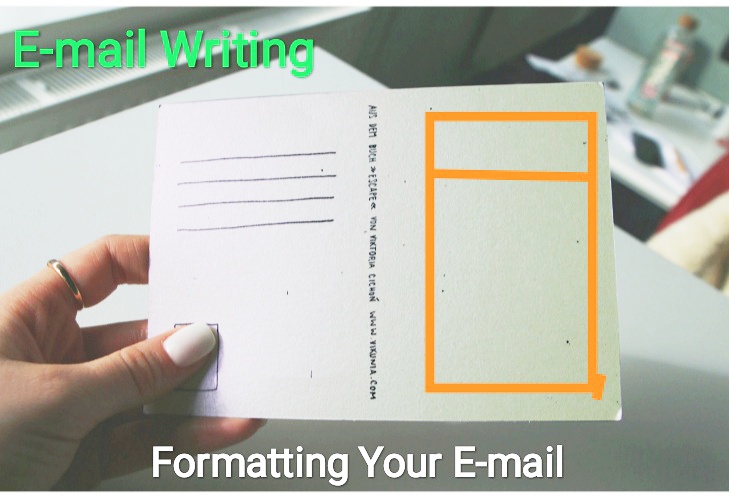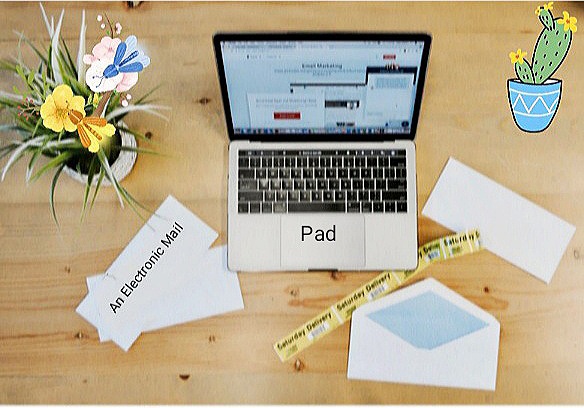What are The Types of Sentences
When students learn to write, they begin to learn about four types of sentences, and punctuation plays a role in determining and creating those different types of sentences.
Example:
A group of words that make a fall sense is called a Sentence.
Example:
The person who expresses affirmative meaning in Sentence is called Affirmative Sentence.
Example:

The person who does not express the meaning of Sentence is called Negative Sentence.
For example:

An Interrogative Sentence is a question that is asked or asked by a sentence.
Example:
b) The sentence starts with either the auxiliary verb or 'wh' words (who, which, what, when, whom, how, whose, why). When did the doctor see him?
A Sentence which implies an order, admonition or request is called Imperative Sentence.
Example:

The person who expresses surprise or emotion by Sentence is called Exclamatory Sentence.
Example:

Example:
Example:
Example:
Example:
Example:
Or, if the clause is a complex sentence. Conditional Sentence is a meaningful sentence that relates to the occurrence or non-occurrence of one thing and the occurrence or non-occurrence of another.
N.B. If you write the clause at the beginning of a sentence, you have to use a comma (,) at the end.
Example:
Example:
Example:
Example:
Example:
Features of Second Conditional
Example:
Example:
Example:
Example:
Structure: If clause subject+had h past participle+main clause-subject+should have/would have might have/could have+past participle of verb.
Example:
Example:
Example:
Example:
Example:
1. Simple Sentence
A sentence that has one subject and one finite verb is called a Simple Sentence.
Example:
2. Complex Sentence
A sentence that contains one or more subordinate clause beside the principal one, is called a Complex Sentence.
Example:
Example:
Example:
Example:
Example:
1. Double Compound Sentence
Compound sentences that have two co-ordinate clauses are called Double Compound Sentences.
Example:
Example:
Example:
What are all the sentence structure types?
Sure. Here's how it is in five sentences. The first three consist of one to four words and simple sentences. The fourth (4th) is a compound sentence; The fifth (5th) is very, but it uses a semicolon to connect a compound sentence to a simple sentence, so it is a compound/ complex sentence.
- Declarative Sentences
- Interrogative Sentences
- Imperative Sentences
- Exclamatory Sentences
These different types of sentences in English encourage us to express ourselves clearly. Using different sentences in your writing adds interest and will help you get your ideas effectively. It is important to know the effectiveness of each type of sentence in order to communicate clearly, so that you can make the right choice according to your own purpose.
Definition of Sentence
If more than two words are combined, then the mind is fully expressed, then it
is called a Sentence.
is called a Sentence.
Example:
- I eat rice.
- He goes to school.
- She read in class Nine.
- Her brother is a good player.
- My father is a doctor.
Example:
- I am a student.
- I eat rice.
- Bangladesh is our homeland.
- They are playing football.
- He is reading a book.
What are The Classification of Sentence
There are five Sentence in English.
There are:
1. Assertive Sentence.
2. Interrogative Sentence.
3. Imperative Sentence.
4. Optative Sentence.
5. Exclamatory Sentence.
Or
1. Affirmative Sentence.
2. Negative Sentence.
3. Interrogative Sentence.
4. Imperative Sentence.
5. Exclamatory Sentence.
There are:
1. Assertive Sentence.
2. Interrogative Sentence.
3. Imperative Sentence.
4. Optative Sentence.
5. Exclamatory Sentence.
Or
1. Affirmative Sentence.
2. Negative Sentence.
3. Interrogative Sentence.
4. Imperative Sentence.
5. Exclamatory Sentence.
1. Affirmative Sentence
Definition:The person who expresses affirmative meaning in Sentence is called Affirmative Sentence.
Example:
- We are playing football.
- They are going to school.
- Rahim is reading a book.
- The above sentences are positive statements.
- These types of sentences tell about person or a thing.
- These are called Affirmative Sentences.
Affirmative Sentence needs
A subject + linking verb + complement
Subject + intransitive verb + object
- Tonusree is Alfaz's classmate.
- She is a good dancer.
- He is reading a book.
- They are playing football.
- She also sing well.
- She wants to be the champion there.
Activity:
Boby's best friend is Talha. Talha is not the first boy in the class. Yet Boby likes him. Talha's language is very good. He speaks in perfect Bangla. He draws good cartoons. He is also a genius in computer games.
Boby's best friend is Talha. Talha is not the first boy in the class. Yet Boby likes him. Talha's language is very good. He speaks in perfect Bangla. He draws good cartoons. He is also a genius in computer games.

Talha is a cricket player too. He likes fielding. Everyday Talha and Boby share tiffin. They like to sit together but often their teachers ask them to sit apart. Only the science teacher allows them to sit together. They both like her a lot.
2. Negative Sentence
Definition:The person who does not express the meaning of Sentence is called Negative Sentence.
For example:
- He is not reading a book.
- They are not playing football.
- She is not going to school. Etc.
- How do you write a negative sentence?
Subject + auxiliary verb + not + action verb.
- He doesn't like big cities.
- He is not a naughty boy.
- I can't walk anymore.
Activity:
Alfaz is a student of Tara mela School. He lives in a small town and doesn't like big cities. He thinks that big cities do not allow people to grow properly. Alfaz likes open fields, rivers and nature.
Alfaz is a student of Tara mela School. He lives in a small town and doesn't like big cities. He thinks that big cities do not allow people to grow properly. Alfaz likes open fields, rivers and nature.

He is not allured by the big buildings and colourful lights of the cities. He likes the fresh foods and the known faces in his town. I have been Alfaz's friend from my childhood. We have many things in common. I also do not like city life that much. We have another interesting similarly. We are not cricket fans. We like football.
3. Interrogative Sentence
Definition:An Interrogative Sentence is a question that is asked or asked by a sentence.
Example:
- How is the weather now?
- What happened to Sam in the third level?
- When did doctor who first appear?
- Is he still at the hospital.
- Does he have any pain in the chest?
- I have had my revenge at last Interrogative Sentence.
- The bold sentences are asking for some information.
- These are called Interrogative Sentences.
- A not of information (?) is used at the end of an Interrogative Sentence.
- Where are Gordon Ramsay's restaurants?
- These sentences have the following attributes.
- Why did Doctor Who stop in 1989?
- What is Matt Smith's last episode?
Activity:
a) The be verb (in case of state verbs) or auxiliary verb (in case of action verbs) comes before the subject. Is he still at the hospital? (be verb before the subject). Does he have any pain in the chest? (Auxiliary verb before the subject).
b) The sentence starts with either the auxiliary verb or 'wh' words (who, which, what, when, whom, how, whose, why). When did the doctor see him?
Note:
When a question begins with a be verb or an auxiliary verb,that is a yes/no question. When a question begins with a wh-word, that is an information question or farming wh-questions
When a question begins with a be verb or an auxiliary verb,that is a yes/no question. When a question begins with a wh-word, that is an information question or farming wh-questions
Watch the video on forming Wh-question:
4. Imperative Sentence
Definition:A Sentence which implies an order, admonition or request is called Imperative Sentence.
Example:
- Dear students, silence please.
- Please, help me.
- Don't run in the sun.
- Read the book.
- Please, keep silent.
Activity:
a) How does each sentence begin?
b) What is the purpose of these sentences?
a) How does each sentence begin?
b) What is the purpose of these sentences?
In the above sentences, someone asks the listener to do something. These are Imperative Sentences. The Imperative Sentences begin with a verb in the base from. To make negative sentences using Imperative you need to begin the sentence with don't and then use the verb. If the sentence is for request, use please at the beginning or in the end with a comma (,). Imperative Sentences are used to give commands, instructions, advice or make requests. Hear is a recipe for making orsaline. Each sentence needs a verb at the beginning. Choose them from the verbs given in the box and write them in the blank spaces.

(stir, pour, add, take, don't add)
- _____ a clean jug.
- _____ two glass of boiled water normal temperature in it.
- _____ a handful of auger and a pinch salt.
- _____ with a clean spoon.
- _____ anything else.
5. Exclamatory Sentence
Definition:The person who expresses surprise or emotion by Sentence is called Exclamatory Sentence.
Example:
- What a beautiful baby!
- How stupid you are!
- What a comfortable bed!
- How Beautiful Paris Piano!
- Who wrote Beautiful Boy!
Activity:
An exclamatory sentence makes a statement that conveys strong emotion or excitement. Placing that tiny stripe above a period at the end of a sentence can really rock the boat!
For example:
- "I got the concert tickets!"
- "Ugh! Why are you yelling at me?"
- "I'm not!"
Have you ever had a text conversation go something like that? Your friend is trying to convey excitement and instead of throwing in some emojis, she uses exclamation marks. No big deal, but it can come across as a different kind of emotion, like anger or frustration.
In truth, exclamation marks are like sugar. Sometimes they can be too much. So, be careful if you just mean to say, "I need some coffee," rather than "I need some coffee!" the next time you're contemplating this magical bean.

Your tone, the emphasis you place on certain words, and your inflection can all change the meaning-and possibly the urgency- of your sentence. Let's take a look at some exclamatory sentence examples. We've broken them up into their most common categories.
Exclamatory Sentence Examples
Exclamatory Sentences That Express Strong Emotion:
- Happy birthday, Amy!
- Thank you, Sheldon!
- I hate you!
- Ice cream sundaes are my favourite!
- Exclamatory sentences are so powerful they can stand alone.
For example:
- Wow, I really love you!
- Fantastic, let's go!
In these instances, you don't have to divide the sentiment into two separate sentences. Instead, insert a comma where the speaker would naturally pause and then finish off with that indicator of excitement, the exclamation mark.
Exclamatory Sentences That Begin with "What:"
- What a lovely bouquet of flowers!
- What does a happy ending mean?
- What a cute puppy!
- What an ugly bug!
- What a happy ending!
Exclamatory Sentences That Begin with "How:"
- How bright they've grown in the sunlight!
- How to calculate walking speed!
- How well he listens!
- How slow they crawl!
- How fast you ran!
Exclamatory Sentences Containing "So:"
- That birthday cake was so good!
- Sheldon's gift was so amazing!
- Eugh, that bug is so ugly!
- I'm so mad right now!
Exclamatory Sentences Containing "Such:"
- He's such a kind soul!
- That's such a gorgeous ring!
- Your puppy is such a cutie!
- You are such a liar!
Avoid Exclamations in Academic Writing
Exclamatory sentences don't really have a place in academic writing or reports. Short of quoting someone else, they are to be avoided. Academic papers are going to be filled with declarative sentences, which make a statement, or Interrogative Sentences, which pose a question. Declarative sentences relay information, plain and simple. They are always punctuated by a period. Interrogative Sentences ask questions and they are punctuated by a question mark.
An Imperative Sentence is also not used much in academic writing, but if you see it in other writing it may be confused with an Exclamatory Sentence as it can also end with an exclamation point. The difference to remember is that an Exclamatory Sentence will always express heightened emotion.
Changing/ Transformation of Sentence
Transformation of a sentence is called transformation of one kind of sentence into another kind of sentence without any change in the meaning of the sentence. The above link gives some rules and examples of Transformation of Sentence.
Ways to recognize a sentence
Assertive Sentence: The subject sits first in this sentence, the subject after the verb and if the object after the verb it will sit. And finally the full stop (.) will sit.
Example:
- Smith goes to Collage.
- Jone is a good boy.
- We can do this work.
- The girl is dancing in the hall.
- He has go to bad tooth.
- The brave alone deserve the fair
Interrogative Sentence: The auxiliary verb or interrogative word is used at the beginning of the sentence and before the subject and the question mark (?) Is placed at the end of the sentence.
Example:
- Did you help the man?
- What do you want here?
- Why have have done it?
- What do we call the change of voice?
- Do I have to go to college uk coronavirus?
- Are you going to school?
- Will be pull out the bad tooth?
- Did you write a letter?
- Do you really have to go to college?
- Did you see the man voice change?
Imperative Sentence: The main verb at the beginning of the sentence and let/please/kindly/always/never/do not etc at the beginning of the sentence and full stop (.) At the end of the sentence.
Example:
- Let him go home alone.
- Always speak the truth.
- Never tell a lie.
- Do not tell a lie.
- Please give me your English book.
- Let us walk in the morning.
- Could you help me?
- Kindly lend me ten taka.
Optative Sentence: May/long/would/sits at the beginning of this sentence and full stop (.) Sits at the end of the sentence.
Example:
- May you be happy.
- Long live the king.
- Would that I were a President of America.
- Could I be a student again!
- Would I had the wings of a bird?
- May you not be unhappy.
- May God make you happy.
- May Allah fulfil your desire.
Exclamatory Sentence: The sentence begins with How/What/Alas/Hurrah/and usually ends with an exclamation mark (!).
Example:
- What a nice bird it is!
- How happy you are!
- Hurrah! We have won the game.
- Alas! My mother is no more.
- What a terrible beast the tiger is!
- What is the most beautiful university!
- Alas! she is no more.
- Hurrah! He is still alive.
- Hurrah! we have won the match.
- What a fool you are!
- How poor the man is!
- How time does fly
Definition of Conditional Sentence
- If you help me, I shall be grateful.
- If we fail, we shall try again.
- If it rains, you will get wet.
Each of the above sentences has two clauses, one if clause or dependent claus and the other principal clause or independent clause. A sentence with such a clause is called a Conditional Sentence.
Or, if the clause is a complex sentence. Conditional Sentence is a meaningful sentence that relates to the occurrence or non-occurrence of one thing and the occurrence or non-occurrence of another.
N.B. If you write the clause at the beginning of a sentence, you have to use a comma (,) at the end.
Or if you write Principal or Independent clause at the beginning of a sentence, you don't need to use comma (,).
Conditional sentences are generally of three types.
There are:
There are:
- First Conditional
- Second Conditional
- Third Conditional
First Conditional Sentence
If the added clause is Present Indefinite Tense and principal clause is Future Indefinite Tense or Imperative sentence.
Example:
- If you want, I shall help you.
- If you want to succeed, work hard.
- If you make delay, you will miss the bus.
- It it is cheap, I will buy it.
Structure: If+present+future (Imperative).
- If he comes, I shall go.
- If it rains, they will not play.
- If he/she is late, he will miss the train.
Note: In Imperative Sentence the subject is implied. Imperative Sentences usually begin with the main verb. Again, if the principal clause is given in this structure, then the incomplete sentence has to be completed by adding If+Present Indefinite Tense with it.
A few more rules of First Conditional
Rule 1: If+Present+may/might+present+form of the verb. This structure is used to mean potential.
Example:
- If the fog doesn't disappear, our journey may be delayed.
- If the presents condition worsens, the present may die.
Rule 2: If+Present+may/can+present form of the verb. The structure is also used to denote permission or capability and capability.
Example:
- If you apply thoroughly, you can get a visa.
- If the weather promoted, we may start our journey.
Rule 3: If+Present+must/should/had better/ could+present form of the verb. Duties, advice, requests etc. This structure is used to express.
Example:
- If he wants to have a good health, he must follow the rules of health.
- If you want to lose load, it is better to eat less.
Rule 4: If+Present Continuous+had better/ Future Indefinite+present form of the verb. This structure is used to indicate current actions or future tasks.
Example:
- If you are waiting for the train, you had better take your luggage.
- If you are looking for Mr. Huq, you will find him at the market.
Rule 5: If+Present Perfect+Future Indefinite. This structure is used to express future work subject to fulfillment of conditions.
Example:
- If you have finished the work, I shall pay you.
- If they have complete digging the pond, we shall allow them to leave.
Second Conditional Sentence
If the clause is Past Indefinite Tense then Independent clause or Principal clause will be past/ Past Indefinite Tense. This conditional is called Second Conditional Sentence. Such a conditional clause mentions future events and the conditions imposed on it are very unlikely to be met.
Features of Second Conditional
- In the Second Conditional Sentence, the verb of if clause is usually Past Indefinite Tens or Pas Perfect Tense.
- The main verb of the main clause is preceded by would/might/could.
- If the verb of the clause is Past Indefinite Tense but it indicates its Present and Future Tense.
Example:
- If were a king, I would help the poor man.
- I would help the poor man if I were a king.
- If you had a lot of rupee, what would you do?
- If you have a lot of rupee, what will you do with it?
Structure: If+Past Indefinite+Principal clause or, Principal clause+If+Past Indefinite.
Example:
- If he invited, I would attend the party.
- If it rained seasonably, the crops would grow well.
- If Smith played, he would win the prize.
N.B. In case of Second Conditional Sentence, the structure of if clause can be 'Subject+were+noun' and in that case the structure of principal clause will not change. All types of subjects (any number and person) would then sit.
Example:
- If I were a bird, I would fly.
- If I were a king, I would help my subjects.
- If I were you, I would not agree to go there.
Note: In this case, were could precede the subject and that is, there is no need to use 'if'.
Example:
- Were I an actor, I would play the role.
- Were she a queen, she would look beautiful.
- Were they present here, they would play.
Third Conditional Sentence
The condition imposed on such a clause cannot be completely fulfilled because the action of this clause does not take place in reality or what cannot be fulfilled in reality is called Third Conditional Sentence. In this case conditional clause is Past Perfect Conditional (Subject should have/would have/Might have/Could have+Past Participle of verb).
Structure: If clause subject+had h past participle+main clause-subject+should have/would have might have/could have+past participle of verb.
Example:
- If had tried, I would have done the work.
- If you helped me, I would help you.
Note: Instead of the above conventional structure of the Third Conditional Sentence, 'had' is often placed before the subject of the subject clause In that case it is not necessary to use 'if' before the subject.
Example:
- Had I tried, I would have done the work.
- Had you invited me, I would have attended your birthday party.
- They could have played better and won the match.
Some Exceptional Conditional Sentence
Rule 1 : Many times if the subject of the clause then will or would is used to express a polite request.
Example:
- If you would give me money, I shall be grateful to you.
- If you would teach me English, I shall be highly benefited.
Rule 2 : The present form of the verb if / clause is then used when the requesting person borrows that his request will be protected. In this case main clause is implied.
Example:
- If you could cut the pencil for me.
- If you would open the book.
- If you would clean the classroom.
Rule 3 : If in clause, then would like / care instead of want or wish would also be conditional.
Example:
- If you would like to play, we shall allow you.
- If you would like to drink, I will offer you a cup of tea.
Now Study The Structure
1. If + Present + Present
- If you read a lot, you can learn a lot
- If you come late, you miss the train.
- We're going to play if it doesn't rain.
2. If Present + Future
- If you come, I shall go.
- If you read regularly, you will do well in exams.
- if you earn much, you will become rich.
- If he is late, he will miss the tran.
3. If + Past + Future in the Past
- If you studied attentively, you wound not fail in the exam.
- If you lived in America, you'd speak English.
- If you worked hard, you'll shine in life.
If I had enough money, I could found out a hospital.
If you tried, you could do it.
4. If when + Present Perfect + Future
- If you've got finished the work, you'll get a prize.
- If you've got written the letter, I shall post it.
- When you have finished your lesson, you'll take rest.
5. Imperative Sentence and If
- Put the tv off if there's no interesting programme.
- Read the lesson attentively if you would like to find out well.
- Go to school if it does not rain.
- If i'm late this afternoon, don't await me.
- Start now if you would like to succeed in before sunset.
- Eat a diet if you would like to possess healthiness.
6. Conditional Sentence and Models
- You can stay if you want.
- You must read well if you would like to pass well.
- I am getting to the function if I can get a ticket.
- We can attend the ocean beach if the weather is ok.
- If you are looking for him, you had better go to hi office.
Exercise for Practice Conditional
1. Complete the following sentence
- Danger comes where _________.
- They will not go out until _____.
- It is high time ______.
- Though it was expected, _____.
- Everybody liked him because, ____.
- The weather was so rough that _____.
- ______ where trains stop.
- The clock strikes when _______.
- Don't jump into water if _______.
- The boy is so small ___________.
- The mountain is so high that ________.
- ______ so that he may shine in life.
- I have not so much time ________.
- If you had informed me earlier _______.
- He run fast lest ____________.
- _______ because he was weak.
- It is high time they ____________.
- The poem is so hard ___________.
- We went to the place __________.
- Where there is a will ___________.
- _______ I could not walk.
- I know the man ______________.
- The patient died _____________.
- A man is known _____________.
2.Complete the following sentences using first conditional
- You will keep fit _________.
- We shall start our journey ________.
- If they work hard, _________.
- Bina will sing well ________.
- Your neighbour will respect you ______.
- If you swim everyday, _____.
- She will catch cold ________.
- Smith will fall sick _______.
- If they watch the movie, _________.
- If Belal neglects his duty ________.
- If he reads regularly, _________.
- They will win the match ___________.
- If she dances well, _________.
- They will arrive in time _________.
- He will go mad _________.
3. Complete the sentences using second conditional
- If I had much wealth _______.
- He would accompany me ______.
- I would buy a new car _____.
- It they helped the poor, ________.
- If you prayed to Allah, _________.
- Alam would be very happy _______.
- If you practised well, _________.
- My sister would laugh ________.
- You would get the job _________.
- They would participated in the function ______.
- Smith would fall short of money _______.
- If David wanted my help, _________.
- If Jone found his mother _________.
- If I had the wings of a bird, ________.
- If you sang a song _________.
- Abid would go abroad _________.
Sentence According to Structure
Sentence is divided into three parts based on the structure.
There are:
- Simple Sentence
- Complex Sentence
- Compound Sentence
1. Simple Sentence
A sentence that has one subject and one finite verb is called a Simple Sentence.
Example:
- Fire/ burns.
- The moon/ shines at night.
- The blind boy/ sings well.
- I/ know how to do it.
- The clever thief/ ran away before his arrest.
N.B. Simple Sentence consists of an Independent or Principal clause. And Simple Sentence does not have any Conjunction.
2. Complex Sentence
A sentence that contains one or more subordinate clause beside the principal one, is called a Complex Sentence.
Example:
- The moon shines when it is night.
- The boy, who is blind, sings well.
- I know the thief, who was clever, run away before he was arrested.
- I met a woman who can speak good English languages.
N.B. Subordinate clause subordinating Conjunction (as/ since, because, though/ although, if, unless, so that, weather, while, when, after, before, untill, till, that, who, which, why, where, how, as starts with if/ though etc).
Example:
- Though he is poor, he is honest.
- Although Singapore is a small country, it is rich.
3. Compound Sentence
A sentence that contains one or more co-ordinate clauses beside the principal one, is called a Compound Sentence. A Compound Sentence may also contains a subordinate clause.
A sentence that contains one or more co-ordinate clauses beside the principal one, is called a Compound Sentence. A Compound Sentence may also contains a subordinate clause.
Example:
- He is poor but honest.
- The thief was clever and ran away.
- Take it or leave it.
Note: A Compound Sentence has two clauses, one of which is principal clause and one is co-ordinate clause, also known as double sentence.
Example:
- Do not go near the dog, for it mad and may bite.
- He got up when the sun set and went home.
- Work while you work and game while you game.
Some sentences contain a compound subject:
Conjunction and can not be turned into two clauses. They look like Compound Sentences, but in fact they are simple sentences.
Example:
- Two and two make four.
- Tik and tok are great friends.
- Bread and butter is my favourite food.
- Youth and wisdom seldom exits together.
There are:
- Double Compound Sentence
- Multiple Compound Sentence
1. Double Compound Sentence
Compound sentences that have two co-ordinate clauses are called Double Compound Sentences.
Example:
- Be quite or I shall punish you.
- You must do it or you will be punished.
- We are our destiny and we call their destiny.
2. Multiple Compound Sentence
Compound Sentences that have more than two co-ordinate clauses are called Multiple Compound Sentences.
Compound Sentences that have more than two co-ordinate clauses are called Multiple Compound Sentences.
Example:
- Jeny loves Jeba and Jeba loves Jeny but they often quarrel.
- I got the news and I was ready to go there but a sudden illness prevented me from going.
Note: If the subject of the compound sentence added by and is one, then the subject of the clause after and may be implied.
Example:
- He went to playground and he played there.
- She got up when the sun set and went house.
- Work while you work and game while you game.
- Do not go near the snake and for it is mad bite.
Exercise for Practice Sentence
Detect from the following which are the Simple or Complex and Compound Sentence:
- Though they are poor, they are honest.
- I know the boy and girl.
- She is so weak that she can't walk.
- Do it at once or I will punish you.
- He said that he would do the sum.
- Life and hope are Inseparable.
- Tell me when he will come home.
- Be quiet or I shall punish you.
- Nishu is a meritorious student.
- Everybody hates a liar.
- You may falk ill if you catch cold.
- They regard me as a fool.
- Smith is older than Jone.
- As soon as the storm ceased, rains set in.
- I am glad that he was recovered from illness.
- He is known to me.
- She is meritorious but lazy.
- Be industrious and you will succeed.
- They are active.
- The boy who came here yesterday is my older brother.
- Newton was a scientist but Milton was a poet.
- A farewell to alms can only save us from havoc.
- Cricket and football are equally popular with the westerners.
- Mr. Smith is the founder of this village school.
- Symon staggered his going abroad as his mother was ailing.
Change the Following Sentences as Directed
- As he was ill, he could not walk. (Compound)
- Though he is rich, he is miser. (Compound)
- Tell me the true. (Complex)
- The man is too weak to walk. (Complex)
- If you study hard, you will pass. (Simple)
- Study hard and you will pass in the first division. (Simple)
- Though he is rich he is dishonest. (Compound)
- Drink milk in order to get vitamins. (Compound)
- The game being over, we left the field. (Complex)
- As I was ill, I could not attend party. (Compound)
Frequently Asked Questions (FAQ)
What is a proper sentence structure in English language?- Subject + verb + object
- Simple structure of any sentence in English language.
- Sentence = A group of words that are in sequence (s + v + o) and have meaning is called a 'sentence'.
Sure. Here's how it is in five sentences. The first three consist of one to four words and simple sentences. The fourth (4th) is a compound sentence; The fifth (5th) is very, but it uses a semicolon to connect a compound sentence to a simple sentence, so it is a compound/ complex sentence.





